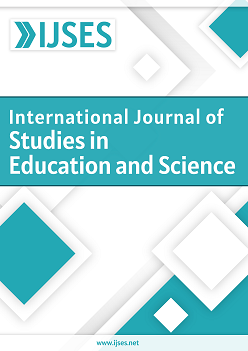The Effectiveness of Brain-Based Learning (BBL) on Students’ Achievement and Knowledge Retention in Science
DOI:
https://doi.org/10.46328/ijses.122Keywords:
Brain-Based Learning, Science instruction and learning, Academic achievement, Knowledge retention, Motivation towards scienceAbstract
The aim of the current study is to investigate the effects of Brain-Based Learning (BBL) on academic achievement and knowledge retention in science subjects for middle school learners. The participants were six graders at one of the private schools in Abu Dhabi, United Arab Emirates (N=85). In the study, a pre-test (before the beginning of the experiment), experimental design (eight weeks), a post-test (week eight at the end of the experiment), and a retention test (ten days after the experiment) have been used to test the hypothesis. The participants were divided into two groups; an experimental group where 40 students were subjected to intervention of BBL during science classes for about eight weeks, and a control group where 45 students had conventional science classes. The pre-test results before the experiment and the post-test conducted at the end of week eight were analyzed to explore the effectiveness of BBL on students’ achievement in science, the data showed that there was no significant difference between the control group and the experimental group. As a view to explore the effectiveness of BBL on knowledge retention, the results of the post- test and retention test, conducted ten days after the experiment, were compared and analysed, the data showed that there was a significant difference in the results between the control and experimental groups in the boys’ classes. This suggests that BBL approach may be more effective on knowledge retention than the conventional teaching approach.References
Abdul Rahman, S. & Ajineh, A.R. (2025). The effectiveness of Brain-Based Learning (BBL) on students’ achievement and knowledge retention in science. International Journal of Studies in Education and Science (IJSES), 6(1), 48-65. https://doi.org/10.46328/ijses.122
Downloads
Published
Issue
Section
License
Copyright (c) 2025 International Journal of Studies in Education and Science

This work is licensed under a Creative Commons Attribution-NonCommercial-ShareAlike 4.0 International License.
Articles may be used for research, teaching, and private study purposes. Authors alone are responsible for the contents of their articles. The journal owns the copyright of the articles. The publisher shall not be liable for any loss, actions, claims, proceedings, demand, or costs or damages whatsoever or howsoever caused arising directly or indirectly in connection with or arising out of the use of the research material.
The author(s) of a manuscript agree that if the manuscript is accepted for publication in the International Journal of Studies in Education and Science (IJSES), the published article will be copyrighted using a Creative Commons “Attribution 4.0 International” license. This license allows others to freely copy, distribute, and display the copyrighted work, and derivative works based upon it, under certain specified conditions.
Authors are responsible for obtaining written permission to include any images or artwork for which they do not hold copyright in their articles, or to adapt any such images or artwork for inclusion in their articles. The copyright holder must be made explicitly aware that the image(s) or artwork will be made freely available online as part of the article under a Creative Commons “Attribution 4.0 International” license.

This work is licensed under a Creative Commons Attribution-NonCommercial-ShareAlike 4.0 International License.





